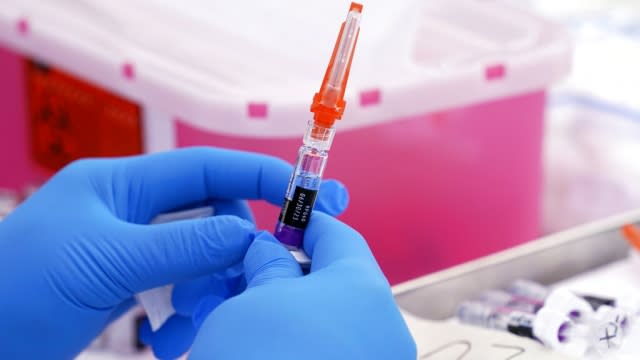CDC has updated flu vaccine guidance for those with egg allergies

While peak flu season typically begins in December and ends in February, the best time to get your flu vaccine is in September and October.
However, the Centers for Disease Control and Prevention has updated some of its guidelines, mostly regarding egg allergies.
Most flu vaccines contain small amounts of egg protein, which is introduced during the vaccine-manufacturing process. Previously, those who suffered from severe egg allergies could get vaccines with "additional safety measures" — but now those extra measures aren't necessary.
According to the CDC, the flu vaccines for the 2023–2024 season will have a new version of the "influenza A (H1N1) pdm09 virus." There will be an egg-based vaccine and a cell-based vaccine, also known as a "recombinant vaccine."
SEE MORE: Tripledemic? How to prepare for a mix of COVID, RSV, and flu this fall
The CDC says that recombinant flu vaccines are manufactured without using the flu virus or chicken eggs in their production.
Now people with egg allergies can take any suitable flu vaccine, egg-based or not, without taking special safety steps beyond regular vaccine practices.
Additionally, the CDC recommends everyone 6 months of age and older get vaccinated, but avoid early August vaccinations unless you're pregnant and in the third trimester, if a child requires two doses, or if you won't be able to receive the vaccine during the months of September and October.
Individuals vaccinated against the flu had a 40% to 70% lower risk of flu-related hospitalization, the CDC says.
